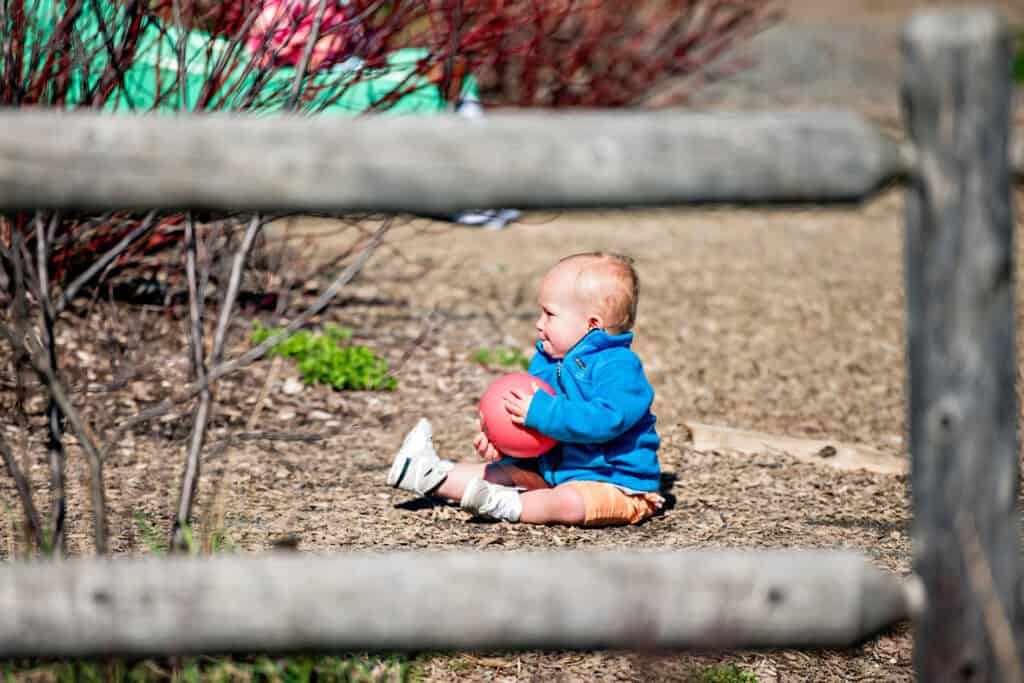After the hottest summer on record, communities around the country are still grappling with the outcomes of a changing climate, from wildfire smoke and excessive heat to historic flooding and more.
As the effects of climate change intensify, so too do the risks to children, with tremendous potential impacts on their health, well-being and both current and future opportunities.
To realize our vision of a future where all children can thrive and every family has equitable opportunity, we must take action on climate change.
The Connection Between Climate Change & Early Childhood
Recent years have demonstrated the devastating and widespread repercussions of climate change, both across the country and around the world – and research shows that climate change detrimentally and disproportionately affects infants, young children, and pregnant people, particularly those in frontline, fenceline and historically disinvested or marginalized communities.
Yet climate change is more than just the weather. While climate events like hurricanes or droughts are easily observable, there are also significant, widespread and long-term impacts on systems like food and health care, and in turn, a direct connection to mental health, resilience and overall well-being. To successfully adapt our systems and societies, we must place the needs of climate-vulnerable groups at the center of our efforts.
As a network of early childhood champions, our mission is to advance quality early learning so every child can thrive. Part of that work is ensuring both children and their families are healthy, supported and stable. Climate change directly impacts children and families’ ability to thrive – and in the face of such a tremendous threat to current and future well-being, this work is ours to do in partnership with leaders in other sectors.
From families to providers, researchers to advocates and beyond, early childhood champions have a perspective to share on climate change. Our continued engagement and advocacy are critical to building resiliency and creating a brighter future for young children, families, and communities.
Local Spotlight: Air Quality in Washington, D.C.
From March to July 2023, Canadian wildfires scorched 25 million acres of land – an area approximately the same size as the state of Kentucky – and pumped smoke into the air across much of North America, drastically affecting air quality.
At Educare Washington, D.C., staff witnessed firsthand how the decline in air quality impacted their community. In response, they deepened intentional family engagement around what this environmental issue meant in the moment: encouraging use of masks, building awareness of what the school was doing with air quality checks and changes to programming, and more.
While climate-induced issues like wildfire smoke had not previously been of deep concern in areas like D.C., the real-life exposure to poor air quality that their community and region experienced had a tangible impact on children and families and solidified that this would be a conversation to both pay attention and contribute to going forward.
A Roadmap for Change: The U.S. Early Years Climate Action Plan
Launched in October 2023, Flourishing Children, Healthy Communities, and a Stronger Nation: The U.S. Early Years Climate Action Plan asks a critical question: How can we ensure the health and success of young children, families and caregivers, and communities in the context of climate change?
This action plan arises from the efforts of the Early Years Climate Action Task Force, convened by Capita and This is Planet Ed (Aspen Institute) to listen and learn from families, early learning and care providers, climate leaders, researchers, medical experts, and more on the intersection between early childhood and climate change.
Driven by the urgent need for climate policies centered around the well-being of children and families, this plan outlines actionable opportunities for partners in different sectors, geographies, and communities:
- Federal, state and local government
- Early years providers
- Business community
- Philanthropy
- Researchers
Looking to the Future: How We Can Support Children & Families
From parents to policymakers, caregivers to philanthropists, researchers to employers and beyond, we all have a role to play in supporting our youngest children amidst the challenges of climate change.
To learn more and take action:
- Dig into the Early Years Climate Action Plan, discovering recommendations for early childhood education providers, researchers and more.
- Join the upcoming virtual fireside chat, “Flourishing in the Face of Climate Change: A Conversation with Congresswoman Jennifer McClellan.”
- Read about the United Nations’ most recent climate change report.
